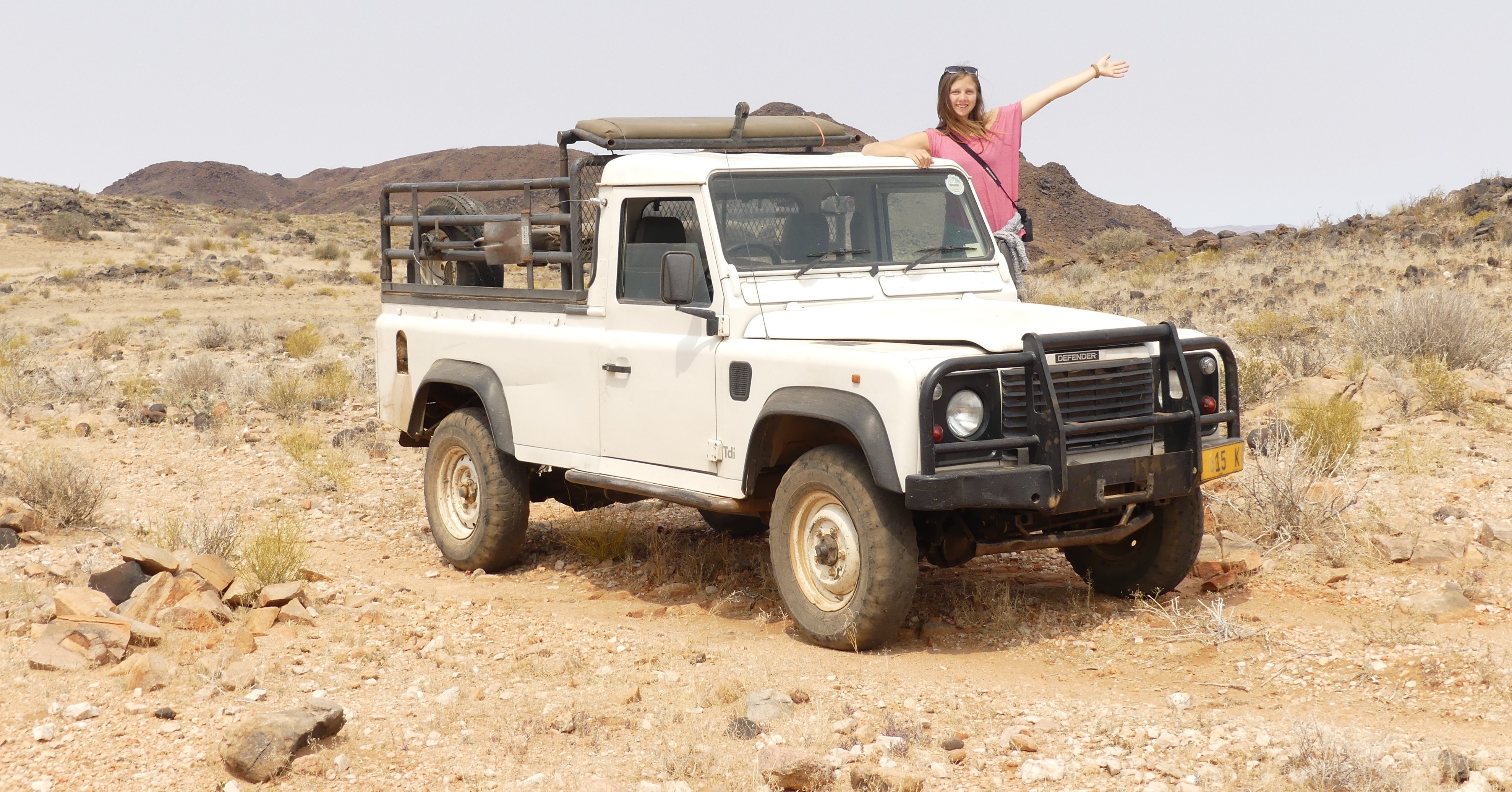Refill the diesel, check the wheels and push the drowsy landrover out of the garage to start it in a bit of luck - so begins the working day of two students of the Faculty of Tropical AgriSciences sent off to the field in the middle of a waste Namibian semi-desert. On a dusty road full of potholes, stones and ravens, the cloud passes through such a peculiar landscape that they sometimes act as members of the NASA crew training on a Mars expedition. Viktor knows every road and goes over large stones or narrow aisles surrounded by rocks. Karolina sometimes drives, but only where it does not endanger the lives of crew members.
The car parked strategically downhill to allow it to be push-started if it later refused to start, leaving it somewhere in the desert and set out for a march. Theys pass through dry riverbeds surrounded by extraorinary rock walls. Some are smooth, light, or orange, sometimes with sharp black protrusions. Looking at the geological mess, they both think, behind which rock the leopard lurks. It is this shy beast that has become the focus of new research at the Faculty of Tropical AgriSciences and will remain at least for the next few years.
KumKum Farm is located in south-east Namibia, on the border with South Africa, divided by the Orange River. The research of the local leopard population, led by doc. Ing. Karolína Brandlová, Ph.D. was undertaken by doctoral student Ing. Viktor Neštický and the Namibian semi-desert has become his new home since April 2018. Karolina Mikslová, as a master student of Wildlife Management in Tropics and Subtropics, participated in the research for her diploma thesis and during the summer she participated in data collection in Namibia.
The aim of the research is to determine the size and range of the leopard population, their habitat and food preferences. The main tool for data collection are at this moment camera-traps that Viktor installed out in the reserve on dozens of stations to capture leopard images as likely as possible. The station regularly checks and gets the first information about this population, which is quite isolated in the mountainous environment bounded by the Orange River and large farms. It is therefore in the interest of research to also perform genetic analyzes of individuals that will reveal other important information for future planning of their conservation. In addition to controlling camera-traps, Viktor and Karolina spent the summer tracking other mammals on scheduled routes. Preliminary results suggest that the area has no lack of leopards, as well as other interesting species such as Oryx, Greater kudu, Mountain zebras, Aardvarks, or even rare Brown hyenas and Aardwolves.
In the future, it is planned to collar these leopards and to receive other valuable data about their movement in the given environment and activity. As in other places in the world, the population of these large cats, in addition to fragmentation of the environment, is directly endangered by the conflict with farmers. The first interviews show that this problem is present in the area, and to what extent it suggests, besides the mentioned GPS collars, also the planned interviews with farmers.
Studying animals in Africa, it is the dream of many students who come to our faculty and fulfill it is much easier than it may seem at first glance. Whoever is self-sufficient, capable and courageous, can even start working on his own project. The financial side should not be the reason for turning back on such occasions today. Support can be obtained at least from student mobility scholarships or from the Hlávka Foundation, which also supported this research.
Karolina Mikslová


